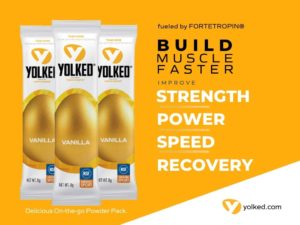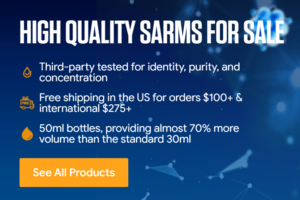There seem to be many misunderstandings about dopamine and serotonin as two of the most important neurotransmitters associated with feelings of pleasure and happiness.
My goal here is to help you understand better what each of them means in simple terms and how they affect our lives, so you can apply that knowledge and become happier.
Dopamine vs. Serotonin
Dopamine is the learning neurotransmitter. It is the positive reinforcement neurotransmitter. It is the neurotransmitter that says – “This feels good. I want more of it.”
Serotonin is the opposite. It’s the neurotransmitter that says – “This feels good. I don’t want or need anymore.”
Those are clearly two different things. And the problem is, if you don’t know the difference, then you are basically subject to continuing to try to reward yourself.
Cortisol
Now there’s a third component to this pathway that is absolutely essential. And it’s called cortisol.
Cortisol is the stress hormone. And what cortisol does, which is particularly important when it comes to dopamine and serotonin, is it works on the part of your brain located right behind your forehead, right above your eyes, called the prefrontal cortex.
The prefrontal cortex is, in the simplest terms, the part of your brain that keeps you from doing stupid things.
If you have a dysfunctional prefrontal cortex, you are unable to “see” see the future. You only live for the moment.
Dopamine and Cortisol
Prefrontal cortical dysfunction is what turns a human into a lizard. It makes you function like this – “Doesn’t matter what happens in the future. I need my reward now.”
And so there’s no ability to cognitively inhibit that feeling of a reward, which in turn drives dopamine even faster. Ultimately that’s what leads to neuronal cell death.
From that, we draw the conclusion that the combination of dopamine and cortisol is what leads to addiction.
So reward is a good reward. Plus stress is not, and that’s what we all are now is chronically stressed.
And so chronic stress makes you want reward because of this lizard brain. And so it sets you up for addiction.
Serotonin and Cortisol
Now on the other side, when it comes to serotonin, chronic stress and cortisol also have an effect.
So serotonin does bind to its receptor to inhibit the next neuron. The problem is that the serotonin receptor is down-regulated by cortisol.
So less serotonin, fewer receptors, that’s depression. So addiction and depression both occur. One due to dopamine, one due to lack of serotonin, but in the presence of cortisol due to chronic stress.
So chronic stress is what belies both of these two major afflictions of the human condition. There is one reward system. One. Now that rewards system is pretty darn important.
The Reward
If you don’t receive the reward, you don’t get out of bed. You actually lie in bed and die is what happens.
And that’s been done in transgenic animals. They’ve basically knocked out the reward system and those animals have no will to live.
You need reward to be able to get up in the morning, go to work, make a living, you know, bring home a paycheck, eat food, et cetera.
All right. So reward is the survival of the species. You cannot do it without the reward. However,
reward and contentment are not the same thing.
Reward vs Contentment
Reward and pleasure are synonymous. Contentment and happiness are synonymous.
So people in our society have confused and conflated these two concepts, pleasure and happiness.
So I find that there are seven differences between the two and people need to understand these differences in order to be able to make head or tail of number one, the world, and number two, how they’re being manipulated by the world in order to make them miserable.
7 Differences between Dopamine (pleasure) and Serotonin (happiness)
So the seven differences are:
1.Pleasure – a short term, like a meal. Happiness is long-term, like a lifetime.
2. Pleasure is visceral. You feel it in your body. Happiness is ethereal. You feel it above everything.
3.Pleasure is taking – like from a casino. Happiness is giving – like Habitat for Humanity.
4.Pleasure is achieved alone – like enjoying a chocolate cake. Happiness is achieved in social groups – like a birthday party.
5.Pleasure is achievable with substances – like for instance, cocaine, heroin, MDMA etc. Happiness is not achievable with substances.
6.Pleasure leads to extremes, whether it be substances or behaviors. Substances like – cocaine, heroin, nicotine, alcohol, and sugar, or behaviors like – shopping, gambling, social media, internet gaming, pornography. All of these in the extreme are addictive. But there’s no such thing as being addicted to too much happiness.
7.Pleasure is dopamine and happiness is serotonin. So two different neuro-transmitters two different areas of the brain. Two different regulatory pathways, two different mechanisms of action, two different drivers.
So, why should we care about this? Here’s why we care.
Dopamine is an excitatory neurotransmitter, and dopamine binds to its receptor. The next neuron gets excited. Now neurons like to be excited, they like to be tickled. They don’t like to be bludgeoned – chronic overstimulation of any neuron in the body leads to neuronal cell death.
The reason behind this is because neurons are so metabolically active and neurotransmission is so metabolically taxing that if you just keep it up and keep it up and keep it up, that neuron is basically going to exhaust and die.
And so the postsynaptic neuron that has the dopamine receptors on it, it has a fail-safe. It has a protective mechanism in order not to be overwhelmed. What it does is it down-regulates the dopamine receptor.
So now that even though you have lots of ligans, lots of dopamine molecules, you have fewer receptors, which means there’s less chance that any molecule will find the receptor. And what that means in human terms is you need more and more to get less and less. And that’s the phenomenon we call tolerance.
So dopamine leads to tolerance buildup. And then when those neurons actually do start to die, that’s called addiction.
Now, serotonin, this other neurotransmitter is not accepted. It’s inhibitory. Now, if you’re inhibitory and if you’re inhibiting the next neuron, do you need to down-regulate the receptor? No, because you’re not going to the neurons, and neurons are not going to die because they’re not being overexcited.
So there’s no such thing as overdosing on too much happiness, but there’s one thing that down-regulates serotonin – it’s dopamine. So the more pleasure you seek, the more unhappy you get.
And if you don’t know the difference between reward and contentment, if you don’t know the difference between pleasure and happiness, and you are led astray by all those ads of popular brands promising happiness if you take this, eat this and drink that – basically get happy by taking this substance, you are sadly mistaken and you know it. Ultimately it will do a number on you.
And it’s been doing a number on hundreds of millions of people over the last 50 years as you know. And it’s a real issue now more than ever, with an increasingly overwhelming number of dopamine-quenching thigs thanks to the wide availability of the internet.
We have become so used to getting those small dopamine hits, that in time lead to less and less happiness and more addiction to those same things, placing us in a seemingly endless spiral of reward-searching, with no end in sight.
We need to learn to be content, and surround ourselves with meaningful things. Do what we truly love and surround ourselves with people and energy that feeds our soul and who we are as human beings.
Happiness is within our reach, it has always been. We don’t need much for it. We just need to realise that the switch for it was always there, within our reach.


